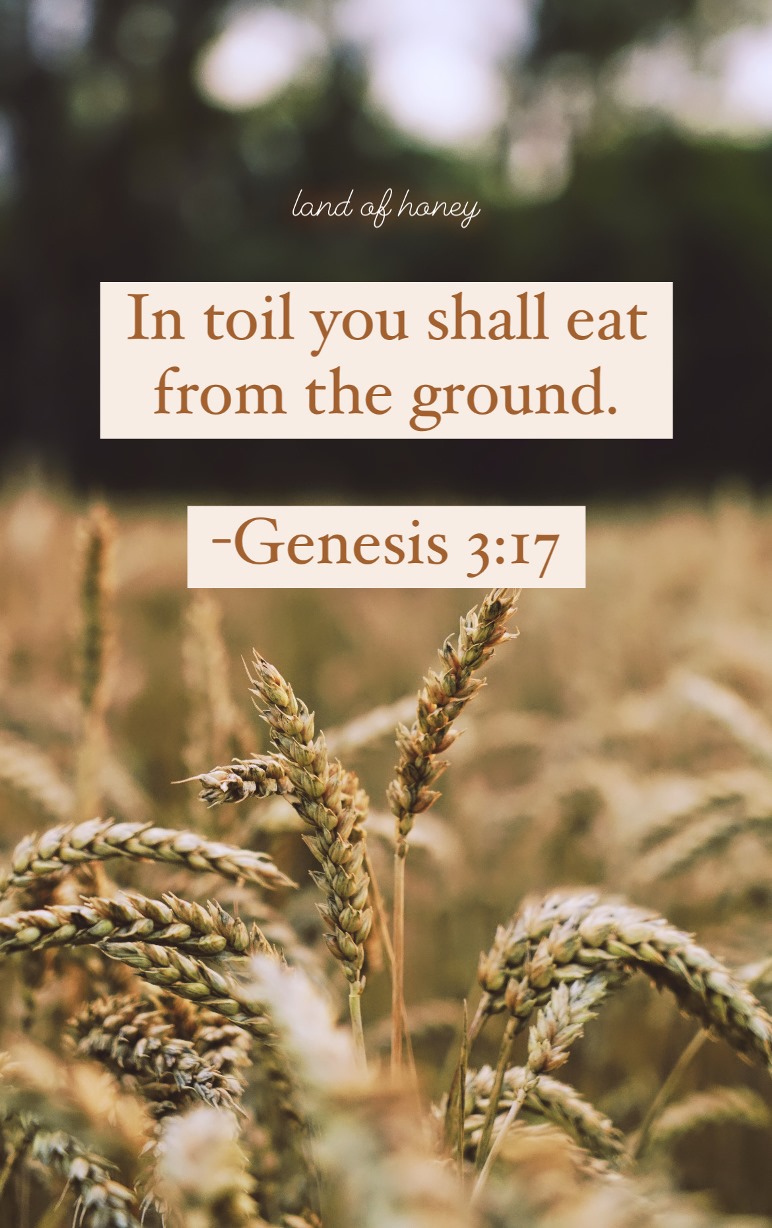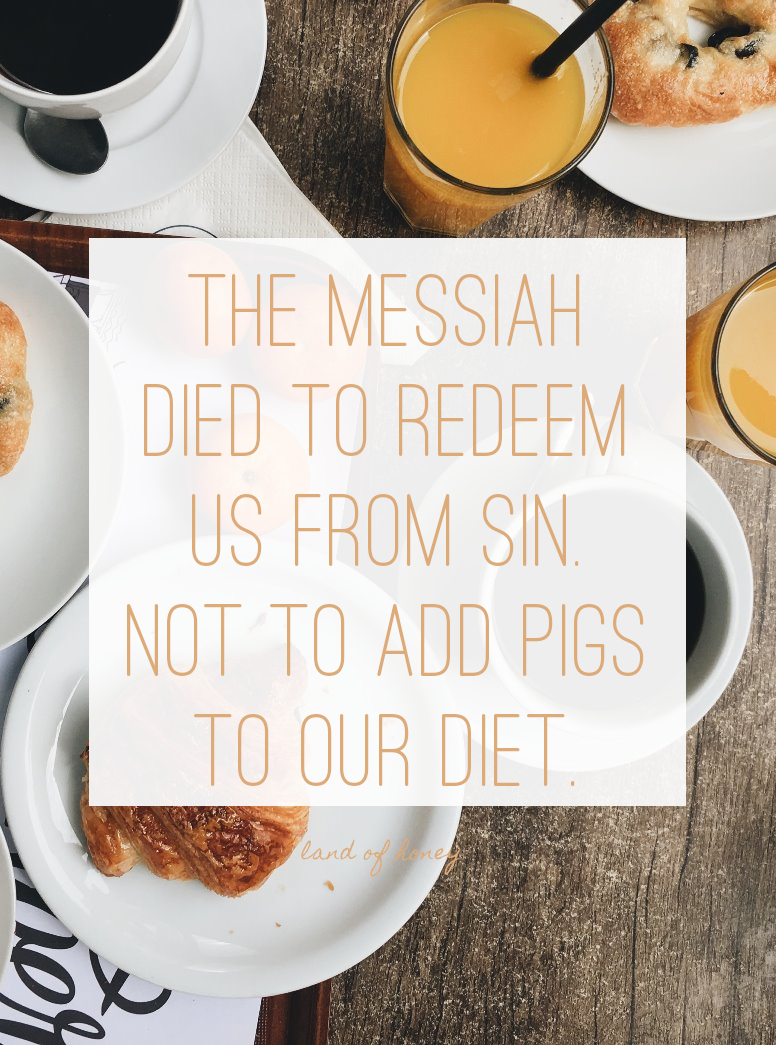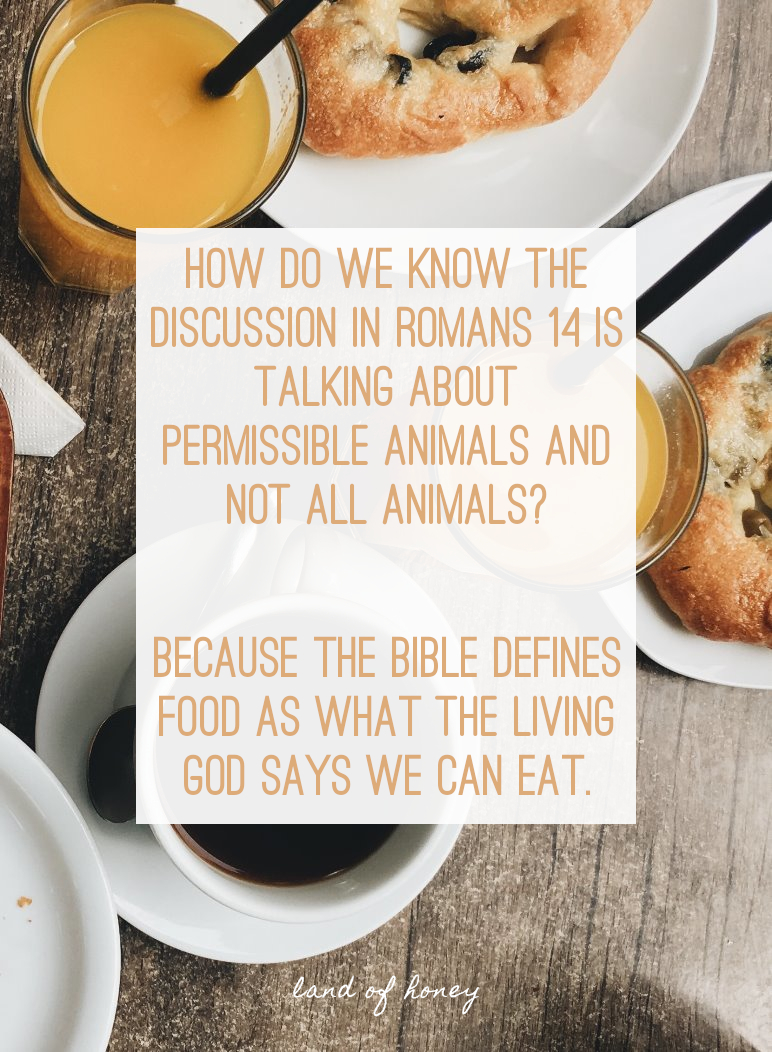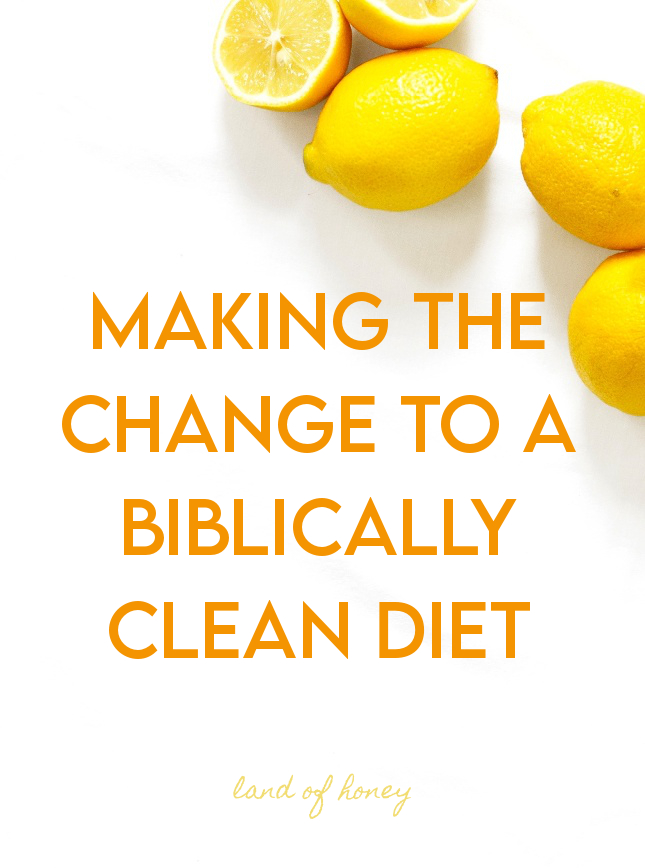What does the Bible mean when it uses the word food or talks about eating and what we consume? It's important that we correctly define food in the same way that Scripture does, so that we will rightly understand passages that talk about food and eating in both the Old and New Testaments.
While it might seem like the obvious definition of food is anything we eat, if we extrapolate that just a little bit further we can quickly see that it will get us into trouble if we don't draw any boundaries. If you've ever travelled to a place that's foreign to you, you've probably had the experience of seeing someone eat, or being offered yourself, something that is not food to you. Play-Doh does not become food if a child chooses to consume it. If you offer food to a friend, it would be upsetting if they ate your bouquet of flowers instead. Someone eating it does not mean it is food.
Many religious people will tell you that we are free to eat anything we like, be it Play-Doh or whatever else. Others will tell you that studying food from a Biblical perspective is nothing but legalism. While I don't think food is the most important subject in the Bible, it comes up enough both in Scripture and in our daily lives, that it's worth investigating. Adam and Eve had to leave the Garden of Eden because of what they ate. Food matters to God.
If we don't look at food in the same way as the Bible, we are going to end up with some bad assumptions and misunderstandings of verses that talk about food, such as Mark 7, Acts 10, Romans 14, and more. We simply cannot understand a verse speaking of food correctly if we don't define 'food' the same way the authors of the Bible did. Let's take a look at the definitions of food the Bible gives us.
The first instruction about food in the Bible comes in Genesis 1:29.
Then God said, "I give you every seed-bearing plant on the earth and every tree that has fruit in it. They will be yours for food."
Originally, plants were the only thing the Creator said mankind could eat. But note that it wasn't all plants that could be eaten, there were stipulations. Fruit trees and plants with seeds could be eaten. You could also make the argument that all the original edible plants were perennial. But later after the fall, we learn that annual vegetal plants could also be eaten.
"In toil you shall eat from the ground." -Genesis 3:17
If we stick with the above argument that only perennial plants were initially eaten, like the fruit trees that produce on their own with no input from man, the toil seems to imply that what needs planted year by year is now also okay to eat. This would include plants like grains, legumes, and annual vegetables.
It wasn't until after the flood that YHWH gave Noah permission to eat animals as well.
"Every moving thing that lives shall be food for you. I have given you all things, as I gave you the green plants." -Genesis 9:3
At first glance, it can seem like YHWH is saying that any animal can now be eaten. But if we catch the caveat: as I gave you the green plants, we see there were stipulations. Not all the plants were permissible to eat, just ones that met the criteria. Not long before this in Genesis 7:2, God tells Noah that he is to bring seven pairs of the "clean animals" onto the ark. We can see from this that Noah knew, or learned, the difference between which animals were clean and which were not. It would make no sense for this distinction to be present if it didn't have some sort of significance.
Leviticus 11 quotes YHWH directly, telling us which animals can be eaten, and which cannot. In some cases, it even explains how we can tell if it can be eaten or not. For example, the Bible says that fish need to have fins and scales in order to be eaten. You might catch a fish that you're not familiar with, but you can use this information to tell if it is edible or not.
"Of all the beasts of the earth, these ones you may eat: any animal that has a split hoof completely divided and that chews the cud." -Leviticus 11:2-3
It goes on to give examples of animals that meet one of these criteria, but not both (camels, rock badgers, rabbits, pigs), and says not only that these shouldn't be eaten, but that we shouldn't even touch the carcasses.
On fish, the Bible says they need to have both fins and scales to be eaten in Leviticus 11:9. Eating sea creatures without these is forbidden, and are considered abominable.
Leviticus 11:13 tells us specific birds that are not to be eaten, including vultures, falcons, ravens, ostriches, owls, bats, storks, and herons.
All insects are off limits, except for locusts, grasshoppers, and crickets. (Leviticus 11:20-21)
Those are the instructions the Bible gives about eating.
Plants, tree fruit, and animals that meet these specifications are food. Animals that don't are not. If the Bible says it shouldn't be eaten, the Bible does not consider it food.
Note that the Bible's definition of food doesn't mean there aren't people who won't follow these instructions. Lamenting about people who eat animals that God says are off-limits comes up in the Bible (Isaiah 66:17 is one example). It's also not saying that animals not permissible to eat will poison or harm you if you do choose to consume them. The Bible defines food according to what the Creator says we can eat - not according to what physically can be eaten, or what is popular in our culture. Following the Bible's instructions about what we eat is a way we can honor YHWH. The New Testament tells us in 1 Corinthians 10:31 that we can eat in a way that glorifies God.
So when New Testament authors make statements about "food," they only mean what the Bible says is permissible for eating. Fish with fins and scales are included in the Biblical definition of food, but sea creatures without them (such as shrimp, dolphins, eels, and scallops), are not considered food by the Bible's authors.
Using the Bible's definition of food will change how you understand many Scripture passages, including some of the Messiah's words!
More on understanding food in the Bible:
Romans 14 Explained
Understanding the Messiah Declaring All Foods Clean
Why 1 Timothy 4 Doesn't Mean that All Animals Should Be Eaten




























